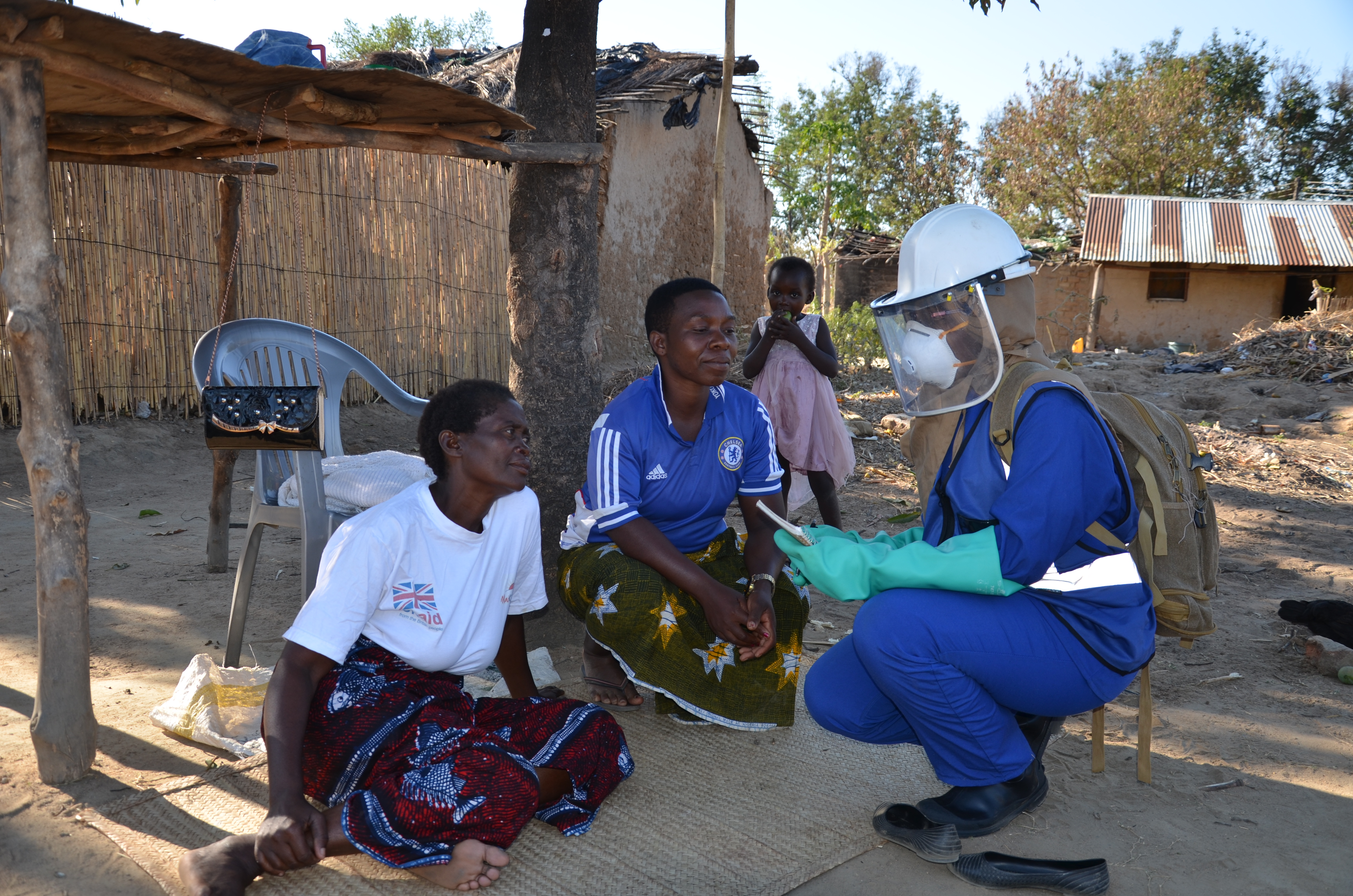 Despite progress, malaria continues to be a major public health problem in Malawi. The disease accounts for 33 percent of hospitalizations in children under five, 34 percent of all outpatient visits, and is one of the major causes of morbidity and mortality across all age groups. Transmission is perennial in most areas and peaks during the rainy season from November to April. With support from PMI and other partners, the Ministry of Health’s National Malaria Control Program has been able to scale up the distribution of ACTs, IPTp using SP, and ITNs. Progress to date is promising; between 2006 and 2015, the mortality rate for children under five years of age decreased to an estimated 64 deaths per 1,000 live births.
Despite progress, malaria continues to be a major public health problem in Malawi. The disease accounts for 33 percent of hospitalizations in children under five, 34 percent of all outpatient visits, and is one of the major causes of morbidity and mortality across all age groups. Transmission is perennial in most areas and peaks during the rainy season from November to April. With support from PMI and other partners, the Ministry of Health’s National Malaria Control Program has been able to scale up the distribution of ACTs, IPTp using SP, and ITNs. Progress to date is promising; between 2006 and 2015, the mortality rate for children under five years of age decreased to an estimated 64 deaths per 1,000 live births.
Through PMI support, VectorLink Malawi has conducted four rounds of IRS (in 2018, 2019, 2020, and 2021) in Nkhotakota District. Prior to 2018, IRS had not been carried out in Nkhotakota since 2012 due to lack of funding. In 2019, the NMCP, in collaboration with World Vision International (WVI) and with the financial support of the Global Fund, conducted IRS in Mangochi District using the organophosphate Actellic 300 Capsule Suspension (CS). In 2020, the NMCP and WVI extended IRS to Balaka and Nkhata Bay districts, bringing the number of IRS districts supported by the Global Fund to three. In 2021, the NMCP and WVI continued to conduct IRS in all the Global Fund supported-IRS districts using SumiShield 50 Water Dispersible Granule (WG) in Nkhata Bay and Fludora Fusion in Mangochi and Balaka districts.
In year five (April 2022 – March 2023), the PMI VectorLink Malawi Project will work with the NMCP, the Nkhotakota District health management team, and other stakeholders to spray 129,410 targeted structures in Nkhotakota District using Actellic 300CS in eight operations sites, and Fludora Fusion and SumiShield 50WG that remain from 2021 IRS campaign in one operations site. The project’s primary objective is to reach a minimum coverage of 85% of the eligible structures found in Nkhotakota District by implementing high-quality IRS operations. The project will also provide technical assistance, training support, and supervision to the Global Fund-supported IRS campaign in Mangochi, Balaka, and Nkhata Bay districts, which will be sprayed mainly with Actellic 300CS and the few sachets of SumiShield and Fludora Fusion that remain from the 2021 spray campaign.
Additionally, the project will carry out the following activities:
- Continue strengthening the capacity of the NMCP and district health teams in planning, implementation, and supervision of IRS activities.
- Provide technical assistance during the planning and implementation of spray operations implemented by the NMCP and WVI with Global Fund support.
- Work with the NMCP, Environmental Affairs Department (EAD), and District Environmental Sub-Committee (DESC) to ensure environmental compliance through inspections before, during, and after spraying.
- Carry out logistics assessments and arrange all procurement, shipping, delivery, and storage of all IRS equipment.
- Work with the NMCP and other local partners to coordinate information, education and communication (IEC), sensitization, and mobilization activities to raise awareness, encourage acceptance of IRS, and mitigate risk of refusals due to fear/misconceptions of insecticide use and expressed preference for ITNs.
- Provide regular monitoring and evaluation (M&E) for the IRS program.
- Integrate gender equality and women’s empowerment into IRS planning and implementation aligned with USAID’s Gender Equality and Women’s Empowerment Policy and VectorLink’s Gender Strategy
- Prepare a landscape analysis of population groups that are unreached by vector control activities and why they are not reached.
- Provide financial and technical support to the Malaria Alert Centre (MAC) of the Kamuzu University of Health Sciences for entomological monitoring.
- Strengthen the national Vector Control Technical Working Group (VCTWG) to ensure it meets quarterly and adequately advises the NMCP on issues related to malaria vector control.
- Assist the NMCP in conducting a NetCALC exercise to identify the most effective and efficient options for continuous distribution to achieve and maintain universal ITN coverage. The exercise will conclude with dissemination of results to key stakeholders.
- Continue working with NMCP to conduct and complete the ITNs and IRS impact evaluations.

